
Parish Lab
Welcome to the Parish Lab
Our current research is focused in two main areas: (i) understanding the biology of the global pathogen Mycobacterium tuberculosis; and (ii) discovering and developing novel drugs for tuberculosis (TB) that are effective at curing drug sensitive and drug resistant tuberculosis.
Our current fundamental research addresses mechanisms of antibiotic resistance, the mode of action of antibiotics and the investigation of essential cellular processes in mycobacteria.
Our applied work encompasses a range of early-stage drug discovery including assay development and high throughput screening, drug target identification and validation, and medicinal and synthetic chemistry.
We are part of the TB Drug Accelerator, a consortium comprised of pharmaceutical companies, universities, research institutes and the TB Alliance and coordinated by the Bill & Melinda Gates Foundation. Our goal is to work collaboratively to identify and develop new drugs for tuberculosis. We are also members of the NIH-funded Seattle TB Research Advancement Center (SEATRAC), which supports the development of a next generation of TB researchers by providing training and advice.
Identification of TB drug candidate(s) with a novel mode of action
Over the last ten years, we have played a pivotal role in the work of the TB Drug Accelerator, a consortium comprised of pharmaceutical companies, universities, research institutes and the TB Alliance and coordinated by the Bill & Melinda Gates Foundation. The overall goal of this consortium is to discover multiple mechanistically distinct TB candidates sufficient to advance a drug regimen to a 1-month proof of concept. Over the past 10 years, we have delivered >65 novel series to this group from primary screening conducted in collaboration with Eli Lilly and AbbVie, as well as identified numerous drug targets. In 2020, we formed a new collaborative team to work closely with AbbVie and Lgenia Inc. to identify drug candidates for a novel regimen. In addition, we work with all members of the consortium providing microbiological support and advice on TB biology.
We have received funding from the Bill & Melinda Gates Foundation to support our work in this consortium. Our role is to provide microbiological support to evaluate several novel chemical series for their potential as drug candidates for incorporation into a new drug regimen for tuberculosis. We work as a collaborative team to advance the most promising series based on biological and chemical properties. We have attractive chemical series which target cell wall biosynthesis, respiration, pH homeostasis, as well as those active against non-replicating and intracellular bacteria. We run all of the microbiological assays required to underpin compound progression from hit evaluation, lead generation and lead optimization and provide guidance and support for the team in decision-making. In addition, we work on target identification and mode of action for each high priority series using a combination of approaches.
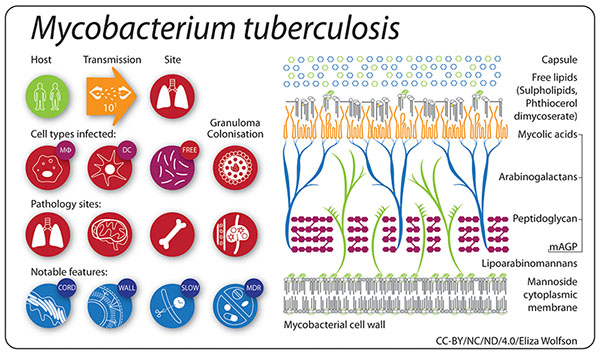
Targeting mycobacterial respiration
A major focus of our recent work has been on the development and evaluation of inhibitors of mycobacterial respiration. We have identified a number of molecule series that appear to target a key component of respiration (QcrB). We have a three-year project from the DOD to develop the morpholinobenzamide series. This project has two major aims: (i) to optimize drug-like properties of the compound series and demonstrate efficacy in an animal model of infection; and (ii) to investigate combination therapy with other respiratory inhibitors in order to identify synergistic combinations. Work will include determining the mode of action and confirmation of the drug target.
Protein secretion as a novel drug target for tuberculosis
We are interested in the role of proteases in metabolism and survival of M. tuberculosis, in particular the essential signal peptidase LepB involved in the Sec pathway of protein secretion. We have previously demonstrated that LepB is a novel drug target and identified a number of promising chemical series which act on the protein secretion pathway using a novel target-based whole cell screen. We have funding from the DOD for a three-year study to develop these novel inhibitors and to evaluate their mode/mechanism of action. The project will also address the role of LepB under replicating, non-replicating and intracellular conditions and determine why its inhibition leads to rapid bacterial death.
The role of Esx-3 in meditating drug resistance
We have identified compounds with interesting biological activities, and which appear to work via similar mechanisms, or at least resistance is engendered by the same mechanism. Our proposal aims to determine the mode of action of these compounds under an R01 funded by NIH/NIAID. We propose that mode of action is via disruption of metal ion homeostasis with additional downstream effects, which would be a novel mechanism for future drug discovery efforts. We are taking a number of approaches combining microbiology, molecular biology and biochemistry to (i) determine the mode of action of compound series (ii) determine how the Esx-3 type VII secretion system mediates compound resistance, and (iii) identify and characterize the targets of each series.
High content screening of Mycobacterium tuberculosis
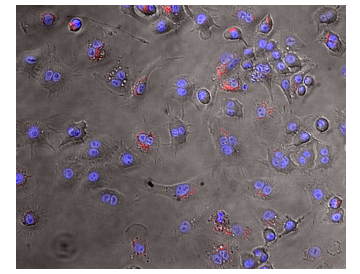 We have a longstanding interest in developing and running novel screening assays to identify new starting points for drug discovery and probe molecules to understand mycobacterial biology. We are funded under an NIH R21 to screen and identify inhibitors which are differentially effective against intracellular bacteria, but which lack cytotoxicity, and so may target novel pathways relevant to infection. Our work also encompasses the mechanism of action and targets of these series.
We have a longstanding interest in developing and running novel screening assays to identify new starting points for drug discovery and probe molecules to understand mycobacterial biology. We are funded under an NIH R21 to screen and identify inhibitors which are differentially effective against intracellular bacteria, but which lack cytotoxicity, and so may target novel pathways relevant to infection. Our work also encompasses the mechanism of action and targets of these series.
Seattle TB Research Advancement Center (SEATRAC)
The Seattle TB Research Advancement Center (SEATRAC) brings together expertise from the University of Washington, Seattle Children’s Research Institute, and Fred Hutchinson Cancer Center. Our overall aim is to support the development of a next generation of tuberculosis (TB) researchers by providing focused mentoring and funding support for new investigators, opportunities for multidisciplinary and collaborative research, and training in laboratory and clinical settings. Within the Basic Science Core, we will provide training for scientists new to working in the Biosafety Level 3 (BSL3) environment and lead training and consulting in advanced microbiology.
Partnership Opportunities
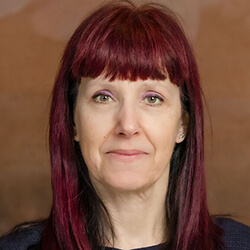
Tanya Parish, PhD
Principal Investigator, Center for Global Infectious Disease Research, Seattle Children’s Research Institute
Professor, Department of Pediatrics, University of Washington School of Medicine
BSc, Microbiology and Genetics, University College London, UK
PhD, National Institute for Medical Research, London, UK
Postdoctoral studies, London School of Hygiene and Tropical Medicine, UK
As a trained microbiologist, I am motivated to use my scientific knowledge to make a difference in global health. My previous work on the basic biology of Mycobacterium tuberculosis formed an excellent foundation upon which to build a drug discovery team. Using knowledge of vulnerabilities in the bacterial pathogen, we can find tractable and novel drug targets. In addition, a grounding in bacterial physiology allows us to develop relevant screening platforms and to run a battery of experimental assays to select the best chemical series to work on in a drug discovery program. We work collaboratively with a large number of external partners, both industrial and academic, to advance new TB drugs.
Previously, I was the Senior Vice President of Drug Discovery at the Infectious Disease Research Institute, where I established a research group focused on tuberculosis drug discovery group. Prior to that, I was Professor of Mycobacteriology at Barts and The London School of Medicine and Dentistry, with a research group focused on mycobacterial biology.
-
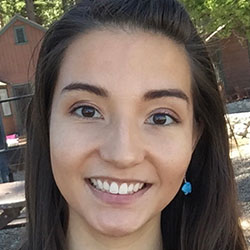
Renee Allen
Research Scientist I
-
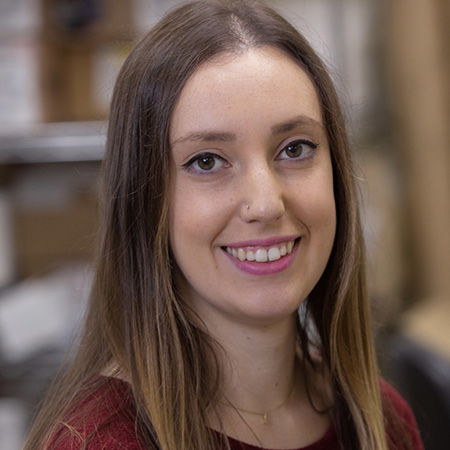
Lauren Ames
Research Scientist IV
-
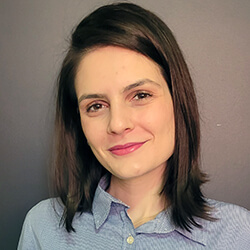
Vanessa Baldin (Pietrowski), PhD
Postdoctoral Scholar
-
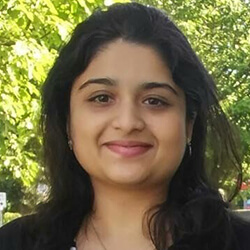
Amala Bhagwat, PhD
Postdoctoral Scholar
-
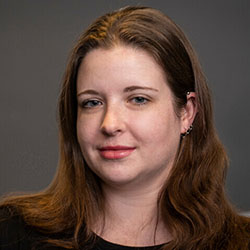
Arielle Butts
Research Scientist IV
-
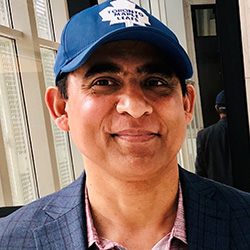
Sultan Chowdhury
Research Scientist IV, Supervisor
-

Aditi Deshpande, PhD
Postdoctoral Scholar
-
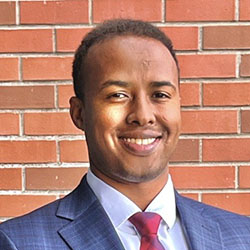
Omar Farah, PhD
Postdoctoral Researcher
-
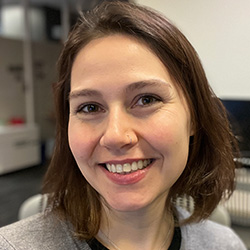
Luiza Galina
Postdoctoral Scholar
-
Kiran Gautam
Research Associate I
-
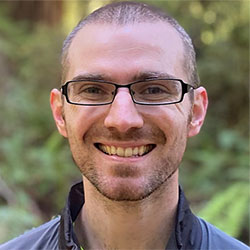
Eric Greve
Research Scientist III
-
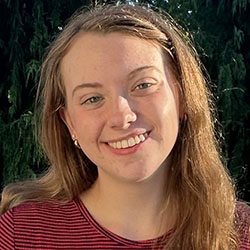
Payton Lambert
Research Assistant
-
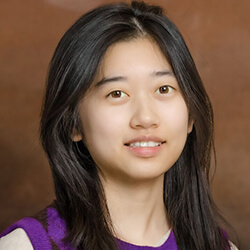
Grace Liu
Research Associate I
-
Upasana Mukherjee, PhD
Postdoctoral Researcher
-

Veronica Primavera
Research Scientist I
-

Teresa Repasy
Research Lab Supervisor
-
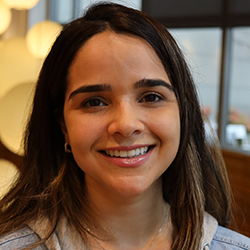
Fernanda Rodrigues da Costa, PhD
Postdoctoral Scholar
-
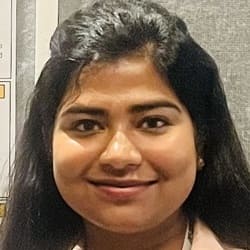
Debasmita Saha, PhD
Postdoctoral Researcher
-
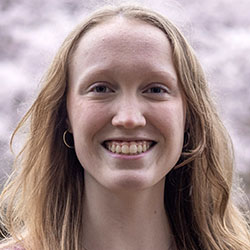
Keira Smith
Student Helper
-
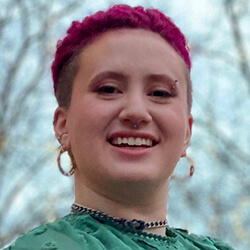
Thalia Solyanik
Research Associate I
-

Kristine Tandoc
Graduate Student
-

Eric Tran
Data and Administrative Coordinator
-
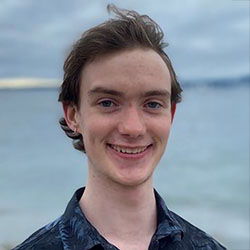
Jack Weir
Research Assistant
